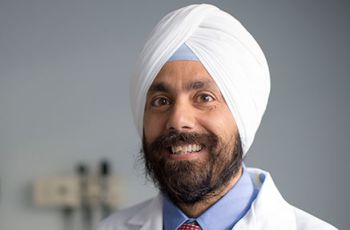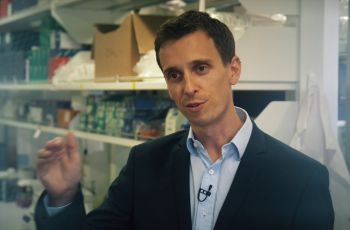Research News
Jesse Pines, MD, MBA, director of the Center for Healthcare Innovation and Policy Research and professor of emergency medicine, and Arvind Venkat, MD, chair of research at US Acute Care Solutions, co-authored a report published in Annals of Emergency Medicine finding major measurement issues in…
Shawneequa Callier, JD, MA, associate professor of clinical research and leadership, received the 2017 Genome Recognition of Employee Accomplishments and Talents Award from the National Human Genome Research Institute, part of the National Institutes of Health.
The George Washington University School of Medicine and Health Sciences will participate in the First International Scientific Research Summit of the GW-Spain Consortium in Madrid on Dec. 1–2.
Ameet Singh, MD, co-authored a study that details the successful trial of a frontal sinus impant that allows anti-inflammatory drugs into the frontal sinus tissue of patients with chronic sinusitis. The research was published in JAMA Otolaryngology – Health & Neck Surgery.
GW and the FDA have published a BioCompute Object Specification Document for research and clinical trial use, which details a new framework for communication of High-throughput Sequencing computations and data analysis, known as BioCompute Objects.
The George Washington University (GW) School of Medicine and Health Sciences (SMHS) partnered with Research!America to participate in its “Reasons for Research” campaign.
A study by Jyoti K. Jaiswal, MSC, PhD, at Children's National and Adam Horn, graduate student at GW School of Medicine and Health Sciences, was published in Science Signaling. The study looks at how mitochondria help repair injured muscles by triggering increased production of reactive oxygen…
GW researcher received an almost $2 million grant to study the body's natural defenses against HIV in order to drive development of better vaccines and therapies.
Amsterdam, the Netherlands – Royal Philips (NYSE: PHG, AEX: PHIA), a global leader in health technology, today announced the results of an international research study conducted with the George Washington University (GW) School of Medicine & Health Sciences evaluating the…
Alison K. Hall, PhD, associate dean for research workforce development at the GW School of Medicine and Health Sciences, and collaborators at the National Institutes of Health, published an article in Academic Medicine exploring the clinician-investigators workforce.





